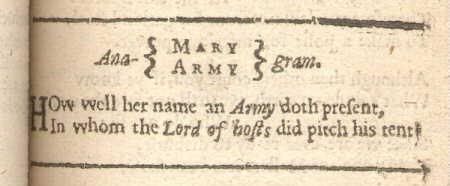We're going to get personal here, so the only stipulation is that you must be honest. Cheat on tests like these, and you only cheat on yourself. You might want to have at your side a fine glass (or two or three) of Merlot to fight guilt or the temptation to not answer the way you should. Be as honest as your stomach allows. The grading scale is at the end of each section. Go for it!
YES/NO
- When you go to a bookstore with a friend, are you usually carrying more books when you leave than your friend is?
- Do you wake up the morning after, unable to remember how many books you bought or how much you spent on them?
- Do you ever lie about how many books you've bought?
- Do you have at least six books next to your bed?
- When a bookstore clerk has been unable to locate a certain book, have you ever been able to find that book on your own?
- Are you unable to walk through a mall without stopping at a bookstore?
- When at a garage sale, is the first thing you do is look at the books?
- When a stranger walks into your house/apartment, are his/her first words usually about your books?
- Do you "watch" TV sports with the sound off?
- When you watch TV, do you have a book in your lap for slow parts or commercials?
Yes to more than eight questions = you are hanging by your fingernails on the edge, your legs kicking in the emptiness and your eyes imploringly turned heavenward for rescue.
Yes to all questions = you are in full space now, a full-throated scream careening off the canyon walls, and it's only a matter of time until you splat onto the canyon floor.
Each question here offers three possible answers. Please select only one. Again, honesty is of the utmost. Is it time to refresh the Merlot?
- It is bedtime for you and your spouse. You are in bed and the reading light is on above your heads. Your spouse closes his/her book, clicks off the light, and amorously snuggles to your side, promising to bestow upon you ardent connubial favors upon the disposal of your own volume. What do you do?
- Lay your book aside and accede to the rigors of your spouse's amatory program.
- Agree to your spouse's demands this time, but insist on getting separate reading lights for the future.
- Drive him/her away with an NBA-style rebounding elbow, flip the light back on, and return to your tome.
- Your book buying has been halted by the barrier that eventually stops all book buying: lack of storage space. How do you react to this problem?
- You sell some of the books, or give the away.
- You jettison existing space-takers, like furniture and large appliances.
- You acquire more space––that is, you buy/rent houses, build annexes, rent storage space.
- You have just run out of gas or had car trouble. Following your initial feelings of anger and disappointment, you realize that you may be there for some time. However, you also realize that you failed to bring any books with you. What do you do?
- Sit and stew and wait for help.
- Read the manuals and insurance policies in the glove compartment.
- This would never happen to you as you always have books with you.
- When you give a book to a friend as a gift, what do you expect that person to do upon receipt of the volume?
- Thank you, put the book aside, and move on to other matters.
- Fall to his/her knees in profuse thanks and begin seriously reading the tome immediately, callously disregarding everything and everyone else present.
- Listen rapturously while you explain the fine points of the volume––which may include the reading of excerpts––and how they relate to the recipient, before digging into the reading of the tome right there.
- What do you do when your friends wish to see your personal library?
- Tell them to "go for it" and leave them to their own devices.
- You get squeamish when you witness them handling your books, bending them and possibly creasing the bindings, and even setting their drinking vessels on them, but you allow them to continue unremonstrated.
- Allow no one to enter your library unless clothed in airtight suits similar to those worn on Gemini space missions, lest they track in any damaging foreign organisms, and you alone handle the volumes.
For every answer (1) give yourself five points; for every (2) selected, ten points; and for every (3) fifteen points. Tally up your score and match it with the following evaluation guideline:
 |
| extracted from Biblioholism:The Literary Addiction |
41-65 You don't have a problem now. It's only a matter of time.
66 > You're gone, sorry. Solicit intervention pronto.
I hope you've enjoyed this whimsical testing of your biblioholism. Let me know, because otherwise I won't know to pass along other whimsy tests. Smile and have a great day.








